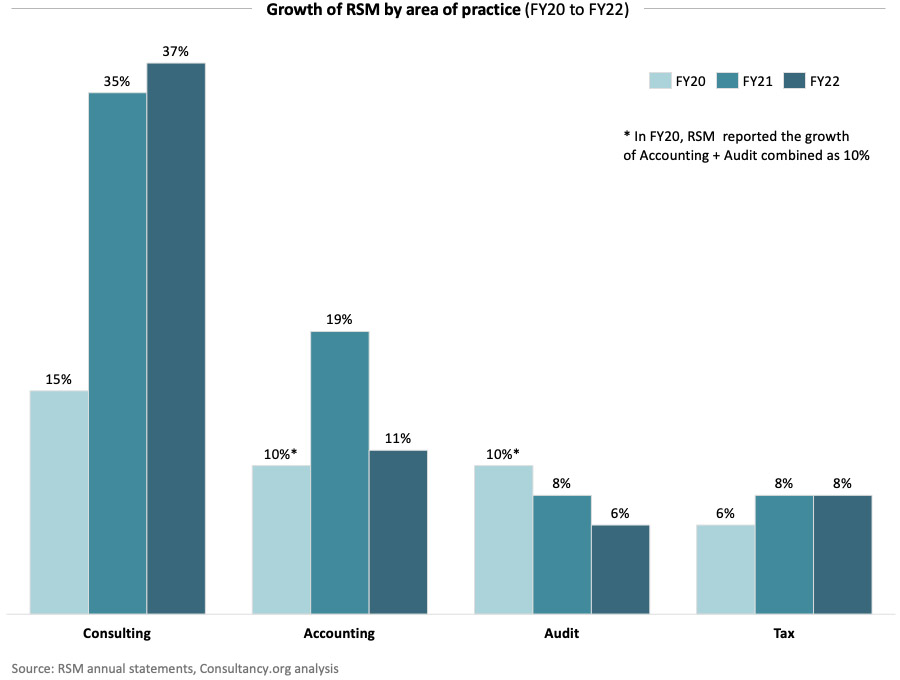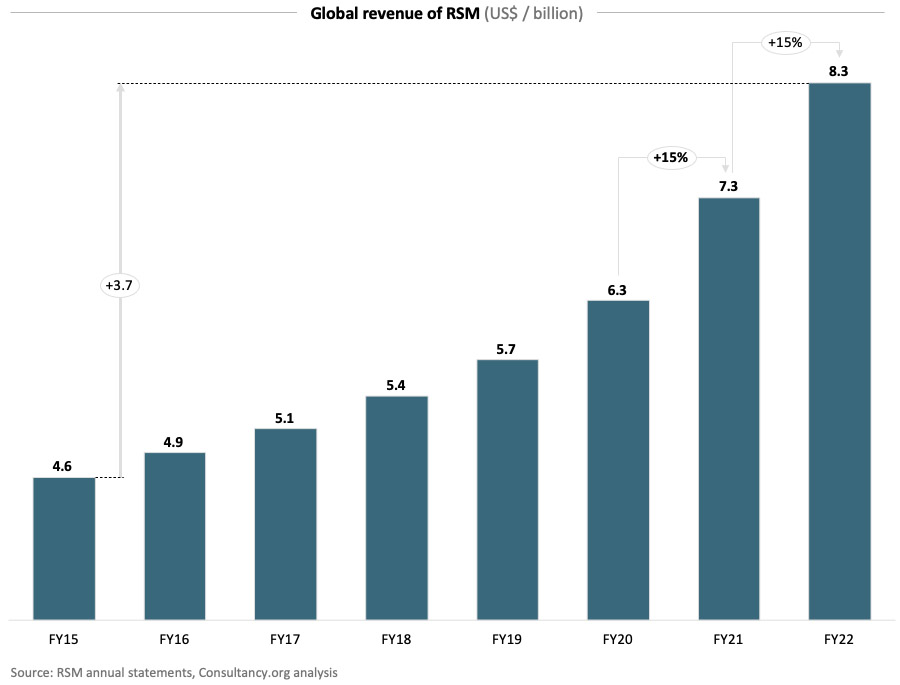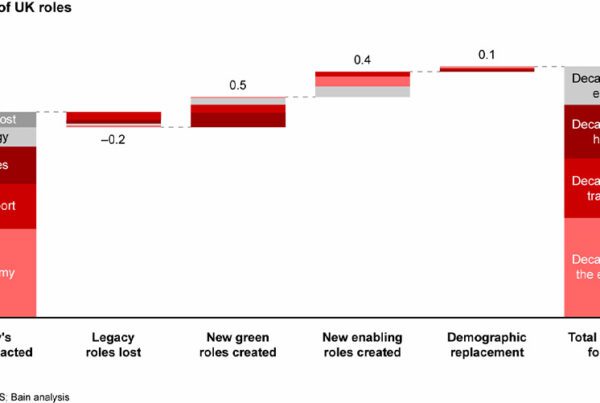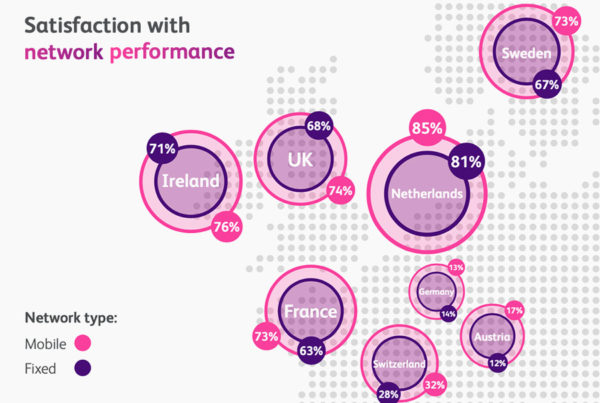Global accounting and consulting network RSM has reported its financial results for 2022. According to the company, it continued its streak of double-digit growth last year, lifting its global fee income by 15% to hit revenues of more than $8 billion.
RSM International, branded RSM, is a global network of accounting and consulting firms. The group represents the seventh largest professional services firm in the UK, and the sixth largest in the world by revenue. As its clients brace for a global recession, demand for the firm’s support boomed again – matching 2021’s revenue growth of 15%.
In 2022, RSM continued its double-digit expansion, with every region recording growth of 10% or more. Globally, revenues surpassed the $8 billion mark, while fee income rose fastest in the emerging markets of Latin America and Asia Pacific, which grew by 26% and 19% respectively. The world’s largest consulting market, North America, meanwhile recorded a notable 14% growth, while RSM also enjoyed a 17% spike in Europe. The Middle East and North Africa region grew revenue by 17%, while the rest of Africa saw revenues jump by 10%.

Commenting on the news, Jean Stephens, Chief Executive Officer of RSM International, stated, “At RSM, our purpose is to instill confidence in a world of change. Our rapid growth is the result of our professionals supporting clients in over 120 countries to unlock value despite operating in an environment of unprecedented change and unpredictability.”
Looking ahead, RSM hopes to capitalize on this momentum by opening up new frontiers for middle-market clients. According to Stephens, this will see the firm double down on investing in further transforming the business into an insight-driven, digital organisation “with compelling products and solutions”.
Stephens added, “Our aim is to ensure we are always creating positive and lasting value for our people, clients and communities by giving them the confidence to tackle the current trading environment and shifting global economic landscape.”

Growth greatest for consulting services
As with many of the world’s largest professional services firms, RSM’s latest financial data further emphasises the growing importance of its advisory wing. While audit and accounting work has traditionally been the bread and butter of these firms, and is still enjoying healthy growth of its own, it is increasingly being eclipsed by the explosive expansion of consulting demand.
A stellar 2021 had already seen RSM’s consulting revenues boom by 35%, as it worked to help clients prepare for what was expected to be a post-lockdown recovery phase. Even though that did not materialise in the end, RSM enjoyed an even grater jump in advisory demand for 2022, however, as companies looked to external advisors for help preparing for an extended economic downturn. As such, consulting fees climbed by 37%. This included heightened demand for IT consulting which increased by 26%, and global risk advisory – which spiked by 26%, as the risk of cyber-attacks remained high amid the world’s accelerated digitalisation drives.
These trends manifested differently throughout the global economy, though. RSM’s European wing – which enjoyed 20% growth for its consulting services in total – saw HR advisory take the lead, as labour shortages rippled across the continent. Increased M&A activity across Europe saw RSM firms advise on 624 transactions in the 12 months ended June 2022, meaning supporting businesses with M&A and related activity led to a 58% increase in financial due diligence revenues in Europe.
Gregor Schmidt, Regional Leader for Europe at RSM, remarked, “Despite significant disruption in Europe, European businesses have their sights firmly focused on future growth. We have seen higher demand for consulting services as businesses in the region face fresh headwinds stemming from political and economic unpredictability. This accelerated pace of change has resulted in businesses embracing digital-first and data-rich solutions, outsourcing key functions to solve talent gaps without disruption, and to not only elevate their awareness of ESG strategies, but to also take positive action.”




